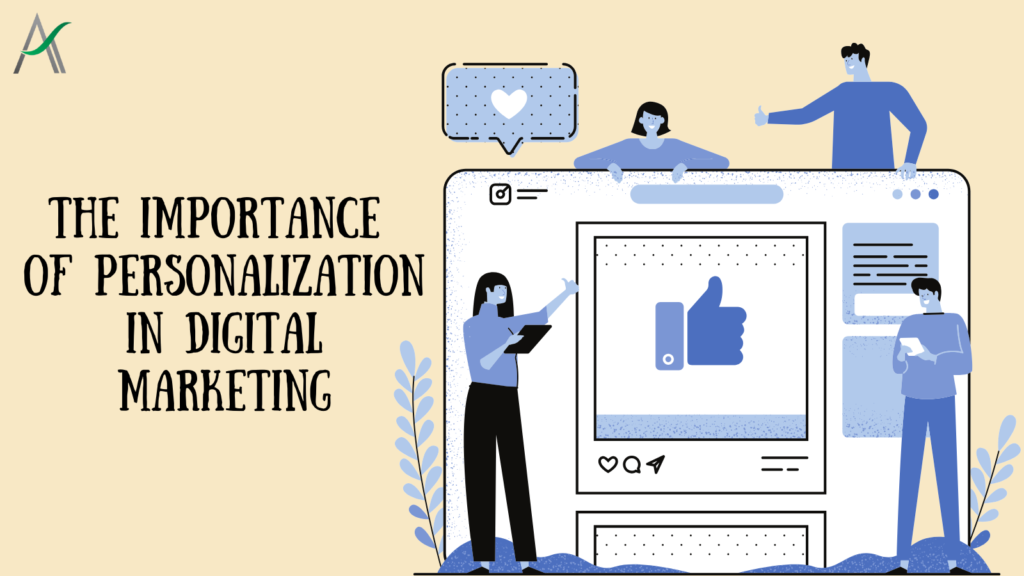Personalization in digital marketing has become more than just a trend; it’s a necessity. Companies are continuously seeking ways to stand out in the crowded online marketplace. Personalization offers a powerful tool to connect with customers on a deeper level, making marketing efforts more effective and meaningful.
Personalization in digital marketing means customizing marketing messages and content to each customer’s needs, preferences, and behaviors. Instead of a one-size-fits-all approach, businesses use data and insights to create unique experiences for each user. This can include personalized emails, targeted ads, custom content, and more.
Why Personalization in Digital Marketing Matters
Enhanced Customer Experience
Personalization significantly improves the customer experience. Customers who feel that a brand understands their needs and preferences are more likely to engage with the brand. This can lead to increased customer satisfaction and loyalty.
For example, personalized product recommendations can help customers find what they’re looking for more quickly, making their shopping experience smoother and more enjoyable.
Higher Conversion Rates
Customized marketing messages are more relevant and engaging, which can lead to higher conversion rates. When customers receive content that resonates with them, they are more likely to act, whether it’s making a purchase, signing up for a newsletter, or downloading an app.
According to research, personalized emails can improve click-through rates significantly compared to generic ones.

Better Customer Retention
Keeping existing customers is often more cost-effective than acquiring new ones. Personalization helps build strong customer relationships, encouraging them to stay loyal to the brand. By consistently providing personalized experiences, businesses can make customers feel valued and appreciated, reducing the likelihood of them switching to competitors.
Increased Customer Engagement
Personalized content is more engaging. When customers receive information relevant to their interests and needs, they are more likely to interact with it. This can lead to higher engagement rates on social media, more time spent on the website, and increased interaction with email campaigns.

Engaged customers are also more likely to share their positive experiences with others, leading to word-of-mouth marketing.
Improved ROI on Marketing Efforts
Personalization can lead to a better return on investment (ROI) for marketing efforts. By targeting the right audience with the right message at the right time, businesses can maximize the effectiveness of their marketing campaigns. This means marketing budgets can be used more efficiently, resulting in higher returns.
How to Implement Personalization in Digital Marketing
Collect and Analyze Customer Data
The first step in personalization is collecting and analyzing customer data. This can include demographic information, purchase history, browsing behavior, and more. Businesses can gather valuable insights about their customers using tools like customer relationship management (CRM) systems.
Segment Your Audience
Once you have collected data, the next step is to segment your audience. Segmentation involves dividing your customers into groups based on shared characteristics or behaviors. This allows you to create targeted marketing messages for each segment. For example, you might have different new, loyal, and inactive customer segments.
Create Personalized Content
With segmented audiences, you can create personalized content that speaks to each group’s needs and interests. This can include personalized email campaigns, targeted social media ads, and customized website experiences. The goal is to make customers feel the content was created just for them.

Use Marketing Automation
Marketing automation tools can streamline the personalization process. These tools can automate tasks like sending personalized emails, displaying targeted ads, and updating customer profiles. This allows businesses to scale their personalization efforts without significantly increasing workload.
Monitor and Adjust
Personalization is not a one-time effort; it requires continuous monitoring and adjustment. Regularly analyze the performance of your personalized marketing campaigns to see what’s working and what’s not. Use this data to make necessary adjustments and improve your strategies over time.
Examples of Successful Personalization
Amazon
Amazon is a prime example of effective personalization. The company uses browsing and purchase history data to recommend products that customers will likely be interested in. This personalized approach has been a critical factor in Amazon’s success, driving higher sales and customer loyalty.

Netflix
Netflix personalizes its content recommendations based on user’s viewing history and preferences. By suggesting movies and shows that align with individual tastes, Netflix keeps users engaged and encourages them to spend more time on the platform.
Spotify
Spotify’s personalized playlists, like Discover Weekly, use data on listening habits to curate music that each user will enjoy. This level of personalization enhances the user experience and keeps subscribers coming back for more.
Wrapping UP!
As technology continues to evolve, the possibilities for personalization in digital marketing will expand. Advances in artificial intelligence (AI) and machine learning will enable even more precise and effective personalization. For example, AI can analyze vast amounts of data to identify patterns and trends humans might miss, allowing for more accurate targeting and better customer experiences.
Moreover, the rise of the Internet of Things (IoT) will provide new opportunities for personalization. Smart devices can collect data on user behavior in real time, enabling businesses to deliver highly personalized experiences based on the context of each interaction.

